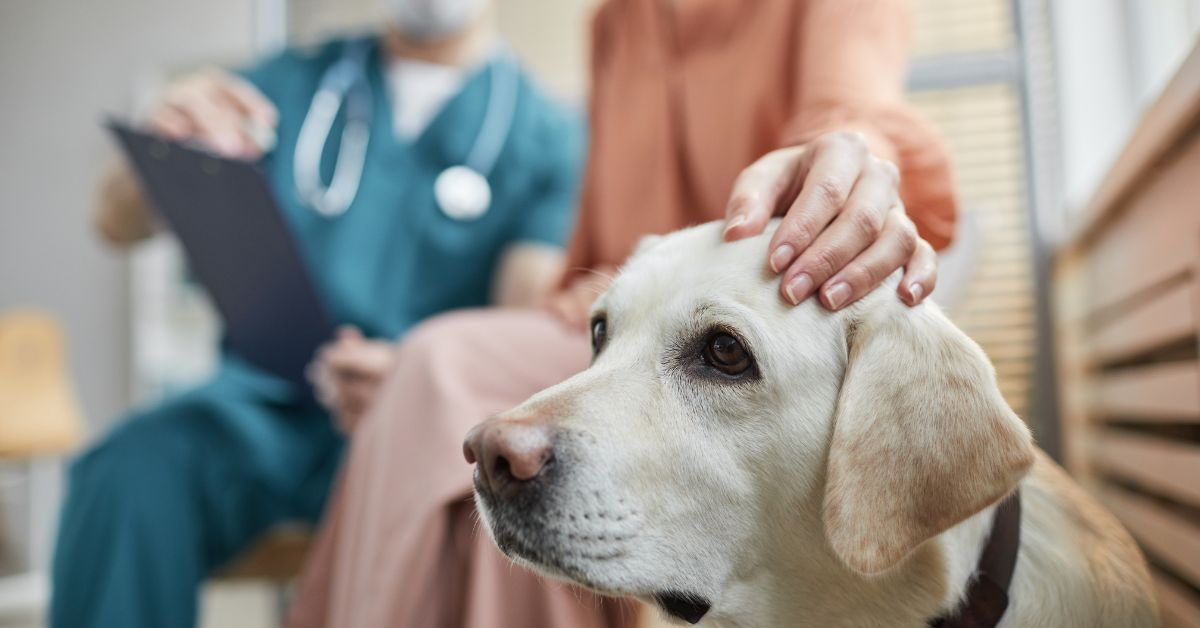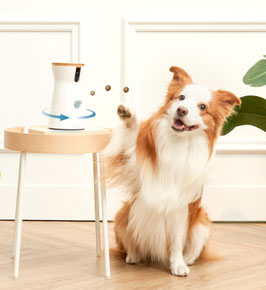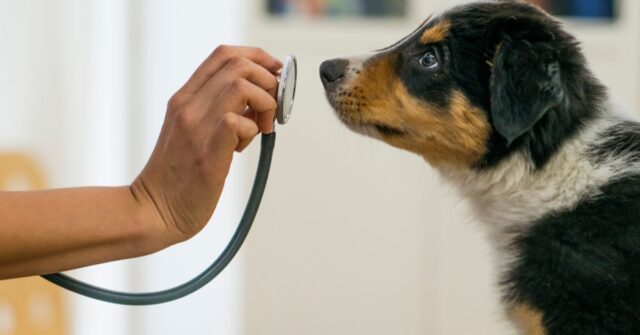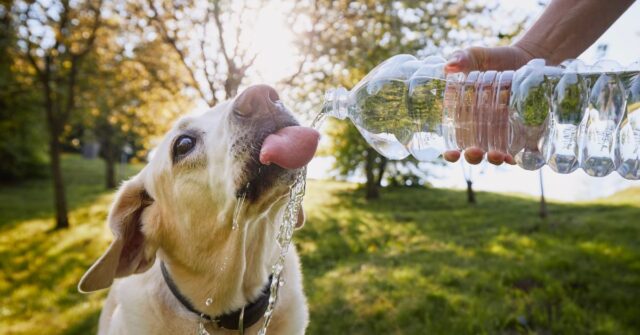Regular veterinary visits are crucial for your dog’s health and well-being. These check-ups help detect and prevent potential health issues before they become serious.
Whether you have a playful puppy or a senior dog enjoying its golden years, knowing when and how often to take your dog to the vet can make a significant difference in their quality of life.
In this guide, we’ll break down the recommended vet visit schedules for dogs at different life stages and provide tips to make these visits as stress-free as possible.
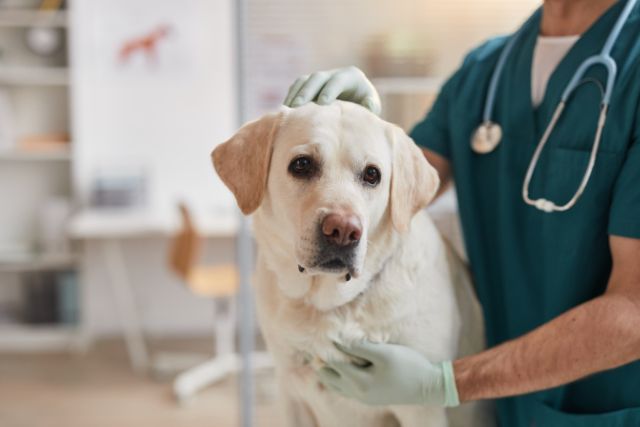
Introduction
Regular veterinary visits are crucial for your dog’s health and well-being. These check-ups help detect and prevent potential health issues before they become serious.
Whether you have a playful puppy or a senior dog enjoying its golden years, knowing when and how often to take your dog to the vet can make a significant difference in their quality of life.
In this guide, we’ll break down the recommended vet visit schedules for dogs at different life stages and provide tips to make these visits as stress-free as possible.
Puppy Vet Visits
During the first year of your puppy’s life, frequent veterinary visits are essential.
Puppies need to visit the vet every 3-4 weeks until they are about 16 weeks old. These early visits focus on vaccinations, deworming, and general health checks.
Your vet will monitor your puppy’s growth and development, ensuring they are healthy and thriving.
First Year Veterinary Schedule
During the first year of your puppy’s life, frequent veterinary visits are essential. Puppies need to visit the vet every 3-4 weeks until they are about 16 weeks old.
These early visits focus on vaccinations, deworming, and general health checks. Your vet will monitor your puppy’s growth and development, ensuring they are healthy and thriving.


Key Vaccinations for Puppies
Puppies require several important vaccinations to protect them from common diseases. The core vaccines include the DHPP (distemper, hepatitis, parainfluenza, and parvovirus) and rabies shots.
Your vet might also recommend non-core vaccines depending on your location and lifestyle, such as Bordetella (kennel cough), leptospirosis, and Lyme disease.
Following the vet’s schedule for these vaccines is vital to building your puppy’s immunity.
Monitoring Growth and Development
Regular vet visits during the first year allow the vet to track your puppy’s growth and address any concerns early on.
This includes checking for parasites, monitoring weight gain, and assessing overall health.
It’s also a great opportunity to discuss nutrition, dental care, and behaviour with your vet, setting a strong foundation for your puppy’s lifelong health.
Adult Dog Vet Visits
For adult dogs, annual wellness exams are recommended. These check-ups help maintain your dog’s health by providing a comprehensive assessment.
During the visit, the vet will examine your dog’s eyes, ears, teeth, skin, and coat. They will also listen to the heart and lungs, check for lumps or abnormalities, and ensure your dog is in good overall condition.
Annual Wellness Exams
For adult dogs, annual wellness exams are recommended. These check-ups help maintain your dog’s health by providing a comprehensive assessment.
During the visit, the vet will examine your dog’s eyes, ears, teeth, skin, and coat. They will also listen to the heart and lungs, check for lumps or abnormalities, and ensure your dog is in good overall condition.
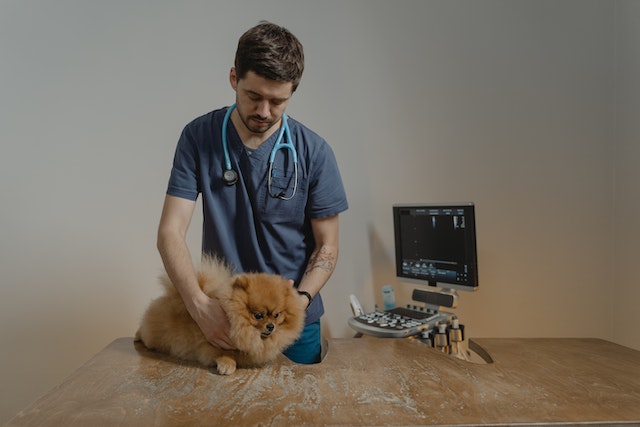

Vaccination Updates
Adult dogs typically need booster shots for core vaccines like DHPP and rabies every one to three years.
Depending on your dog’s lifestyle and exposure risk, your vet might recommend additional vaccines, such as those for Bordetella, leptospirosis, and Lyme disease.
Keeping vaccinations up to date is crucial for preventing disease outbreaks.
Preventive Health Care
Preventive care for adult dogs includes managing weight, maintaining dental health, and preventing parasites. Regular check-ups help detect issues like obesity and dental disease early.
Your vet may recommend specific diets, dental chews, or regular teeth brushing to keep your dog healthy. Parasite prevention, including flea, tick, and heartworm medications, should also be discussed.
Senior Dog Vet Visits
As dogs age, they are more prone to health issues, making biannual vet visits advisable for senior dogs.
These more frequent check-ups allow for early detection and management of age-related conditions. Your vet can monitor your dog’s health more closely and adjust care plans as needed.
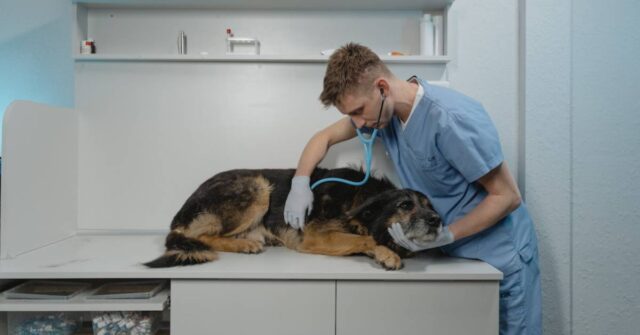

Increased Frequency of Vet Visits
As dogs age, they are more prone to health issues, making biannual vet visits advisable for senior dogs.
These more frequent check-ups allow for early detection and management of age-related conditions. Your vet can monitor your dog’s health more closely and adjust care plans as needed.
Common Health Issues in Senior Dogs
Senior dogs often face health challenges such as arthritis, dental problems, and organ issues. Regular vet visits help manage these conditions effectively.
For example, arthritis can be treated with medications and lifestyle adjustments, while dental problems might require professional cleaning and specific diets.
Diagnostic Tests for Older Dogs
Biannual vet visits for senior dogs often include diagnostic tests like blood work, X-rays, and ultrasounds.
These tests help detect conditions such as kidney or liver disease early. Monitoring these health markers allows for timely interventions, improving your dog’s quality of life.
Emergency Vet Visits
Knowing when to seek emergency veterinary care can save your dog’s life.
Symptoms requiring immediate attention include severe injuries, difficulty breathing, persistent vomiting or diarrhea, seizures, and sudden lethargy.
If your dog exhibits any of these signs, contact your vet or an emergency clinic right away.
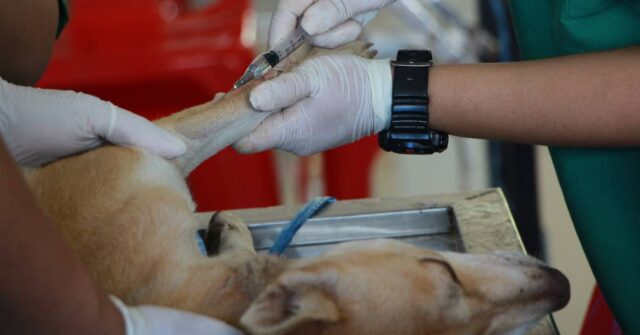

Recognizing Emergency Situations
Knowing when to seek emergency veterinary care can save your dog’s life.
Symptoms requiring immediate attention include severe injuries, difficulty breathing, persistent vomiting or diarrhea, seizures, and sudden lethargy.
If your dog exhibits any of these signs, contact your vet or an emergency clinic right away.
Common Emergencies and First Aid
Emergencies such as ingestion of toxic substances, broken bones, or severe allergic reactions need prompt veterinary attention.
Keep a basic first aid kit at home and know how to perform CPR on your dog. Being prepared for emergencies can make a critical difference in the outcome.
Preventive Care Benefits
Regular vet visits can save money in the long run by preventing serious health issues. Early detection of diseases often leads to simpler and less expensive treatments.
Investing in preventive care helps avoid costly emergency treatments and extends your dog’s healthy years.
Cost-Effective Health Management
Regular vet visits can save money in the long run by preventing serious health issues. Early detection of diseases often leads to simpler and less expensive treatments.
Investing in preventive care helps avoid costly emergency treatments and extends your dog’s healthy years.
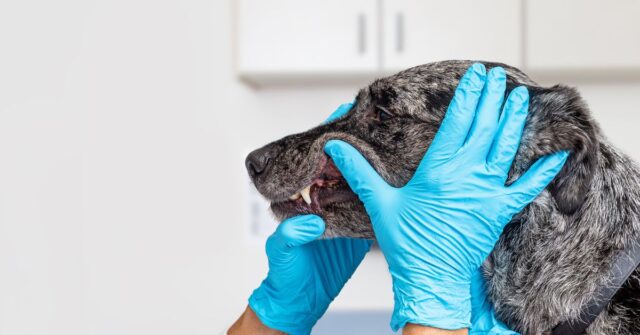

Early Detection of Health Issues
Routine check-ups allow vets to catch health problems early, when they are most treatable.
This proactive approach means your dog can receive timely care for conditions that might otherwise go unnoticed until they become severe. Early treatment often leads to better outcomes and less suffering.
Tips for Vet Visits
Vet visits can be stressful for both dogs and owners. To ease the process, bring your dog’s favourite treats and toys to the clinic.
Familiarize your dog with the car ride and the vet’s office environment before appointments. Positive reinforcement and calm behaviour on your part can help your dog stay relaxed.
Making Vet Visits Stress-Free
Vet visits can be stressful for both dogs and owners. To ease the process, bring your dog’s favourite treats and toys to the clinic.
Familiarize your dog with the car ride and the vet’s office environment before appointments. Positive reinforcement and calm behaviour on your part can help your dog stay relaxed.


Finding the Right Veterinarian
Choosing a vet that suits your needs is crucial. Look for a veterinarian who communicates well and makes you and your dog feel comfortable.
Ask for recommendations from friends or read reviews online. A good vet-pet-owner relationship is essential for effective health care.
Conclusion
Regular vet visits are a cornerstone of your dog’s health and well-being. From frequent puppy check-ups to biannual senior exams, maintaining a schedule ensures your dog lives a long, healthy life.
By understanding the importance of these visits and knowing what to expect, you can provide the best care for your furry friend.
Schedule your dog’s next vet appointment today and take a proactive step towards their lifelong health.

